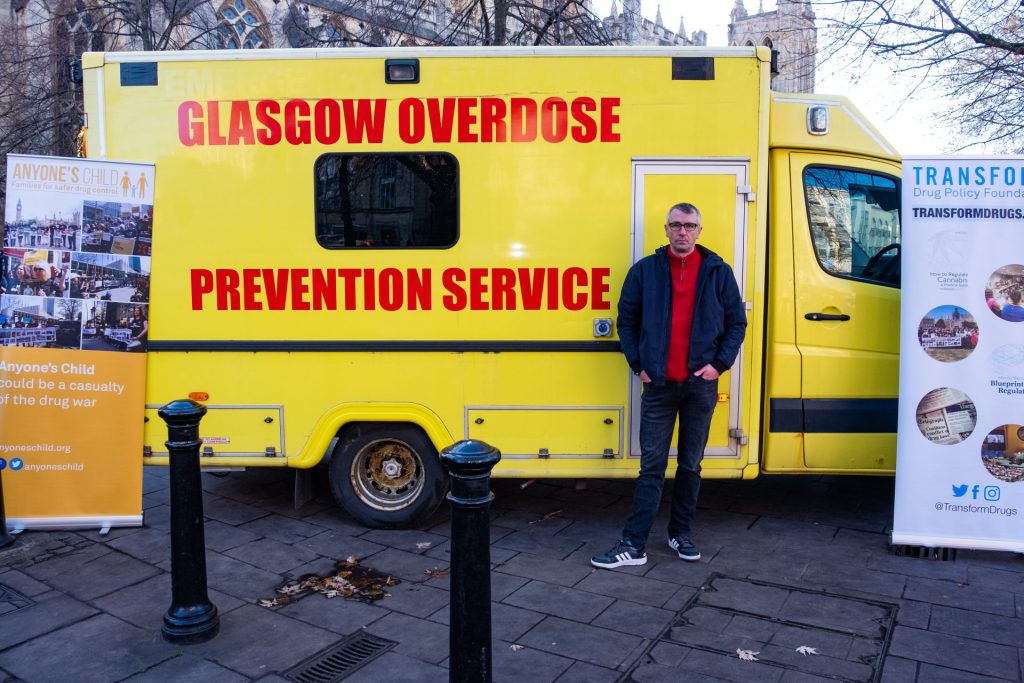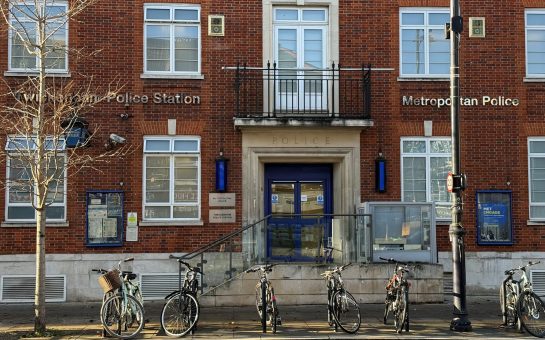For anyone concerned with social welfare, the opioid crisis has produced some of the most worrying statistics of the last decade.
The crisis, generally seen as an American phenomenon stemming from the 1990s as a result of over-prescription and subsequent illegal use to manage dependency, is also occurring in Britain.
Opioids can be integral in treating long term pain with medication like fentanyl and morphine, but this can develop into a dependency on the highly-addictive substance in the form of street drugs like heroin.
According to the World Health Organisation, 500,000 deaths a year are caused by drug use, with 70% of these being opioid-related.
The Rx Awareness campaign by the Centers for Disease Control and Prevention uses the tagline: “It only takes a little to lose a lot”, highlighting the concerns about the widespread crises of opioid addiction.
The Londoners spoke to Martin Powell from Transform Drug Policy Foundation about the Government’s approach to drug policy and what can be done about the crisis.
Transform Drug Policy Foundation is a charity that primarily campaigns for policy change and advises politicians about regulating drug markets, claiming that the governmental policies of the last few decades have failed and proposing a shift towards decriminalisation.
The SNP support this drug decriminalisation, despite Rishi Sunak’s government remaining head strong in their opposition.
Instead the government continue to implement their 10 year plan, even as the World Health Organisation estimates that of the 275 million people who used drugs in 2019, about 62 million were opioid-users.
Transform’s “Anyone’s Child” project helps to put these vast statistics into perspective while “showing people you care whether they live or die”: a humanisation process which can be crucial in helping people get the treatment they need and deserve.
Language around drug use is hugely important as Powell stresses the use of terms like “people who are dependent on drugs” instead of “drug addicts”, which can be reductive and dehumanising.
Medical approaches
Opioid dependence is something that has frequently become a side-effect of over-prescribing.
With NHS waiting times sky-rocketing, doctors are left to rely on painkillers as a temporary treatment, a method which can often result in dependency following long-term use.
NHS England prescription rates for opioids more than doubled from 1998-2018, in part because of the lack of understanding of their ineffectiveness in treating chronic pain.
For those struggling with dependency, the most common route for recovery is rehabilitation centres.
A government report published in January 2023 found that 49% of adults in treatment centres were there for opioid dependency, making it the largest group, followed by alcohol-dependency at 29%.
Of those seeking treatment, 25% of opioid users were referred by the criminal justice system, one of the significant issues identified by Powell.
He said: “Threatening to criminalise them won’t stop them using.
“It gives them a criminal record or imprisons them which pretty much guarantees they’ll never get a job again, making it even more likely that they’ll continue to use drugs and locking them into a life of crime.”
As an alternative, Powell wants more projects in London like the Cranstoun group which currently operates in the Midlands and helps to reduce re-offending through rehab programmes and education, rather than incarceration.
Not only can this protect the future of individuals but it also saves police time, as they can refer users with an app that takes around 20 minutes compared to the 12 hours of police time needed to bring someone into custody.
Rehabilitation
Government data from the last 20 years supports the idea that rehab is not a fix-all solution, particularly when dealing with highly-addictive substances like opiates.
While 49% of people suffering with dependency will complete their rehab program, this statistic declines dramatically for people dependent on opioids at just a 24% completion rate.
Similarly, the average time to complete treatment for opioid dependency takes around three years, compared to just six months for other substance groups.
Powell wholeheartedly supports rehab facilities, but criticises the Government’s approach which often stops when the patient leaves the facility, failing to provide the necessary aftercare to maintain sobriety.
Alternative treatments
Factors like housing and job stability can have a huge impact on relapsing rates, as Transform instead campaigns for programs like heroin-assisted treatment to help patients manage their addiction in a safer way.
These treatments help stabilise the lives of people who are dependent through prescribing twice daily treatments of Diamorphine (heroin) which ensures that they are protected from the dangerous practices of scoring their own supply.
Other proposals from Transform include overdose prevention centres, where people can safely inject with clean needles.

Not only has this been incredibly effective with reducing overdose deaths – a van in Glasgow set up by Peter Krykant oversaw more than 1,000 injections, nine overdoses and no deaths thanks to antidotes like naloxone – but it also saves the Government millions in treatment costs for conditions like HIV.
Within treatment centres, 3,742 deaths were recorded (1.3% of those in treatment), with opiate users accounting for 65% of these deaths, a statistic that has generally been increasing since 2005.
Outside of treatment centres, 4,859 deaths relating to drug poisoning were reported in 2021 according to the Office for National Statistics, with 45.7% of these being opioid-related.
Recovery and policy
For many people suffering with dependency, recovery can be unpredictable, as of the patients entering treatment in 2005, 25% were in continuous treatment and 42% had gone through four or more treatments by 2022.
Powell believes that schemes like the heroin-assisted treatment will provide the long-term care needed to manage addiction, rather than the short-term approach currently adopted.
Even for those who might lack empathy, Powell suggests that the drug and recovery industry could become entirely financially self-sufficient if the Government were to decriminalise and regulate drugs.
This would help tackle proposals to weaken organised crime groups through “taking the market away from organised crime” and putting it towards programs like heroin-assisted treatment.
Portugal has decriminalised personal use, which resulted in 80% savings in social costs from reducing criminal justice procedures – money which could then be used to provide support according to Powell.
For Transform, however, schemes like “Anyone’s Child” highlight that at its core it is not the financial benefits that leave them so eager for reform, but rather the large-scale personal and familial devastation being caused by the crisis.
A spokesperson for the Department of Health and Social Care provided a statement.
They said: “We’re investing an extra £532 million through to 2025 to create over 50,000 high-quality places in drug and alcohol treatment, including another 5,000 young people in treatment.
“This funding will also support growth in evidence-based approaches to reduce the health-related harms of drug misuse, such as needle and syringe programmes to prevent blood borne infections and the availability of naloxone to prevent overdose deaths.”
They also reinforced their commitment to opposing safe injection sites, indicating that anyone found to be running one could be implicated in a criminal offence for possession and supply.
Featured image credit: Transform Drug Policy Foundation





